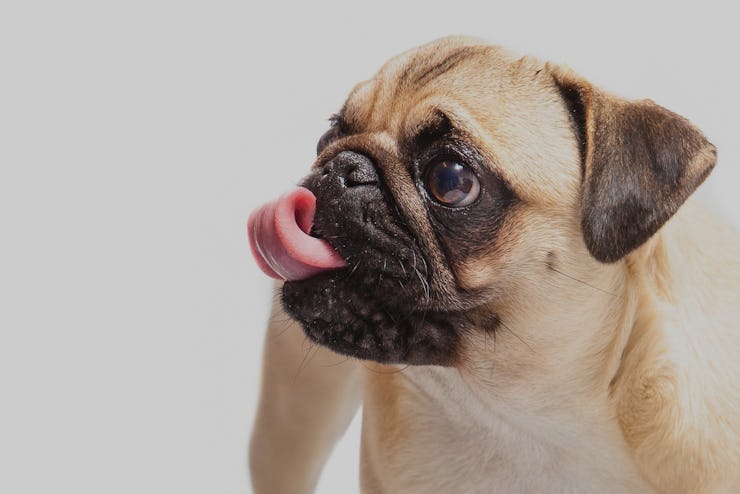The Evolutionary Reason Dogs Eat Their Own Poop
Is your dog a coprophagic?

Dogs are scavengers. As many dog owners know to their cost, dogs often have a penchant for things that we find less than palatable. If it’s not counter or table surfing, it might be raiding the kitchen rubbish bin or snacking on rich pickings from the park, street, or elsewhere.
Occasionally, those rich pickings include poo, much to the disgust of many owners. That poo can be from a range of species (birds, horses, rabbits, cattle, sheep, deer, and in my own dogs’ case, cat poo is a particular favorite). But sometimes, dogs have a desire to consume either their own or other dogs’ feces. This behavior is called coprophagy, literally translated as “feces-eating” and, unsurprisingly, many dog owners don’t like it.
See also: “Poop Talk” Cuts to the Evolutionary Roots of Shame With Toilet Humor
Ironically, dogs are often fastidious at keeping their sleeping areas clean by removing their feces. Dogs will also actively avoid areas contaminated with poo from other dogs. This is probably an innate behavior that has evolved to prevent the spread of disease. So given that eating poo does carry disease risk, why do dogs do it? A recent study has shed further light on the subject and could help us manage the behavior.
First, it seems that not all dogs eat each other’s poo. The study found that only 16 percent of more than 1,000 dog owners surveyed saw their dogs consume canine feces at least six times or more (the study’s definition of coprophagy). And 77 percent recorded never seeing their pets eat other dogs’ poo.
The research showed that several key factors appear to have no effect on whether your dog is a poo-eater. These included age, gender, whether the dog has been spayed or neutered, whether it was housetrained, whether it had been weaned or removed from its mother early, and what the rest of its diet was like. Evidence also suggests that the plethora of products designed to prevent or treat coprophagy, or punishing your dog for eating poo, have no effect on reducing the behavior.
Instead, the recent study suggests the best way to predict whether a dog eats feces is how much access to poo they have. This is particularly the case if the feces are fresh, with over 80 percent of coprophagic dogs only consuming poo less than two days old. It seems that keeping your dog away from fresh poo is the most effective strategy for stopping them from eating it. This is yet another reason to promote regular poo picking and responsible dog ownership, both at home and out walking.
Unsurprisingly, poodles are above it all.
In the survey, dogs described as “greedy,” and those in households with two or more dogs, were more likely to be coprophagic. Terriers and hounds were also more likely to be coprophagic, as were Shetland sheepdogs, with 41 percent of those in the study recorded as eating poo. Poodles, on the other hand, appeared to defy their name and shun the practice.
See also: Poop-Eating Animals Show a Bizarre Social Upside to Coprophagy
Yet none of this explains why certain dogs will eat poo if they can. It might simply be that some dogs like it and have learned, either by accident or with intent, to consume feces. Perhaps dogs do it if their owners or other dogs they come into contact with show a particular interest in feces. After all, we know that dogs often synchronize their behavior with their owners (though it’s unlikely that most affected owners are coprophagic).
Evolutionary Leftover
But the study authors suggest that coprophagy is something much more basic. It’s possible that poo eating is an evolutionary remnant from dogs’ ancestors, where feces could be a source of disease, especially from parasites. Removing feces early by eating it might represent a way of cleaning it up to prevent infectious parasites developing in the days after it’s deposited. And dogs today may indulge in exactly the same behavior.
Don’t give her the chance.
So what should you do if the prospect of your pet eating poo fills you with horror? Aside from owning a single, non-greedy poodle, the best thing to do is simply to prevent your dog from having access to poo, especially the fresh stuff. Clean up after your dog, encourage others to do the same, and try training your dog to resist the temptation to eat poo by rewarding them with an alternative tasty snack.
This article was originally published on The Conversation by Jacqueline Boyd. Read the original article.